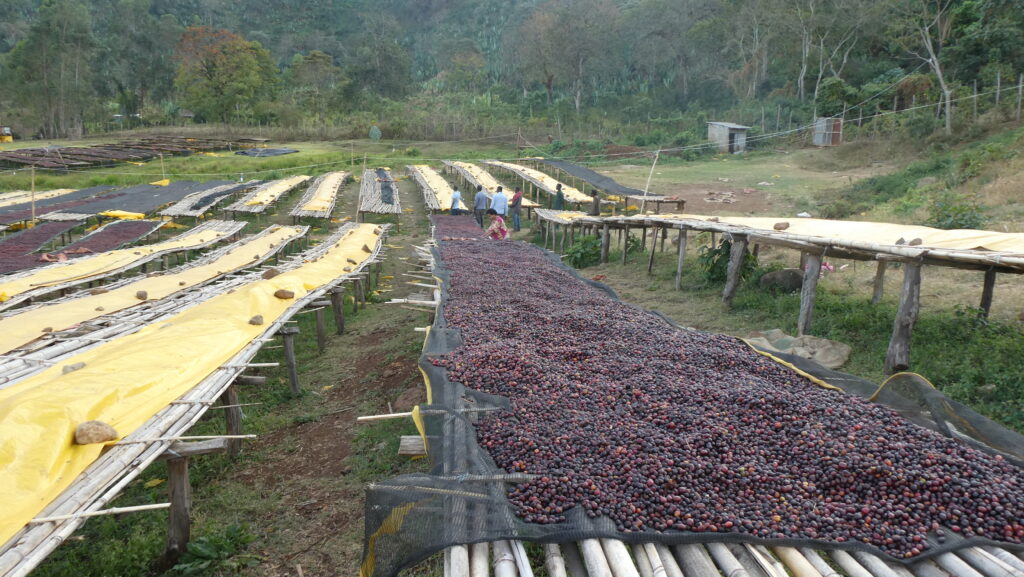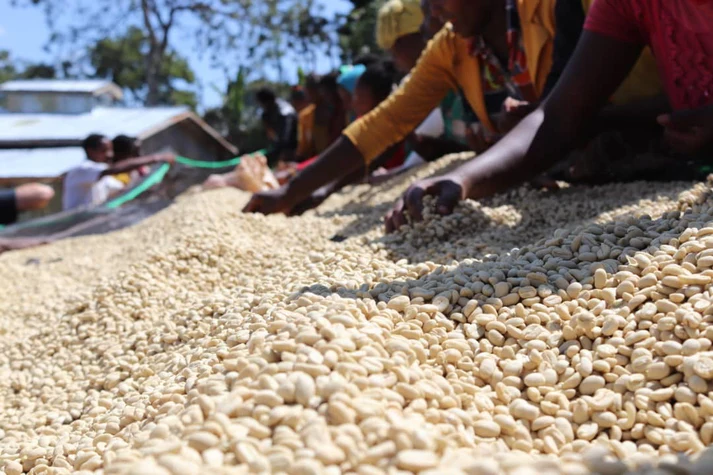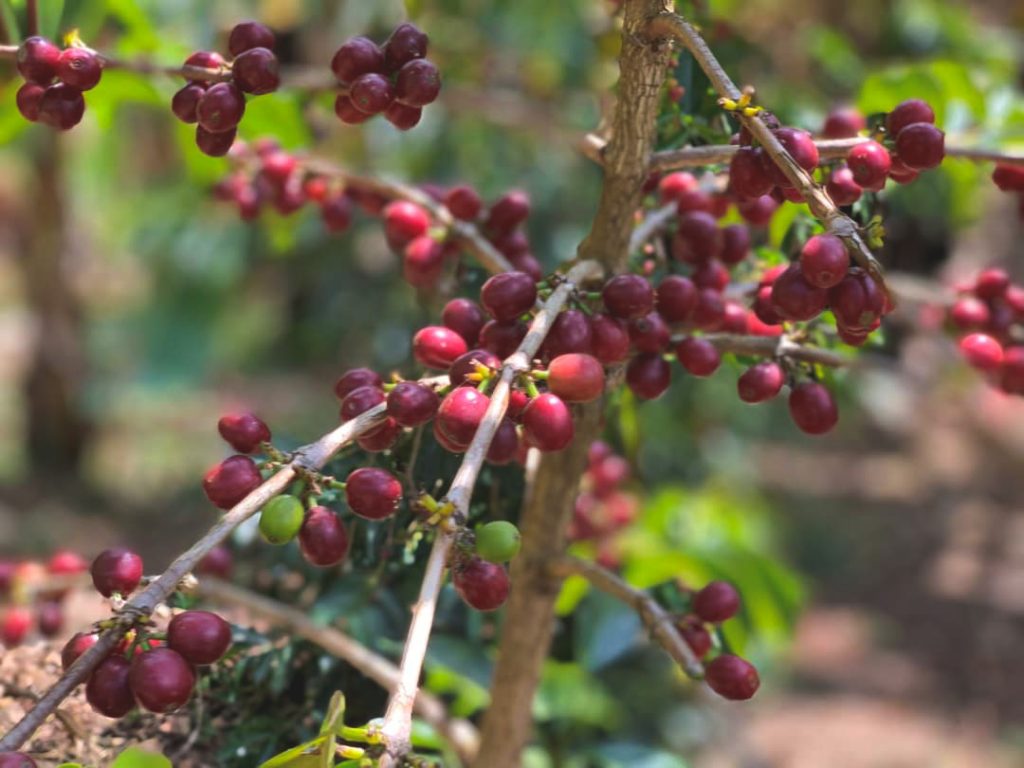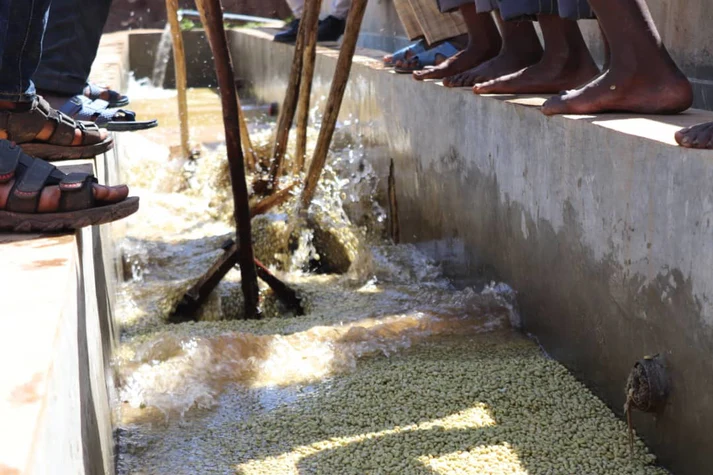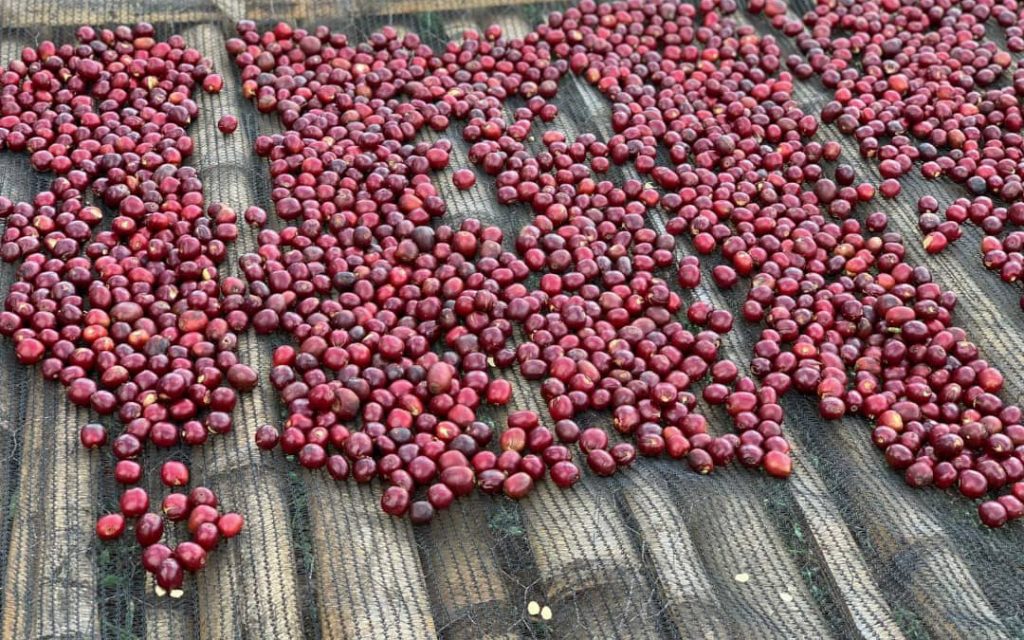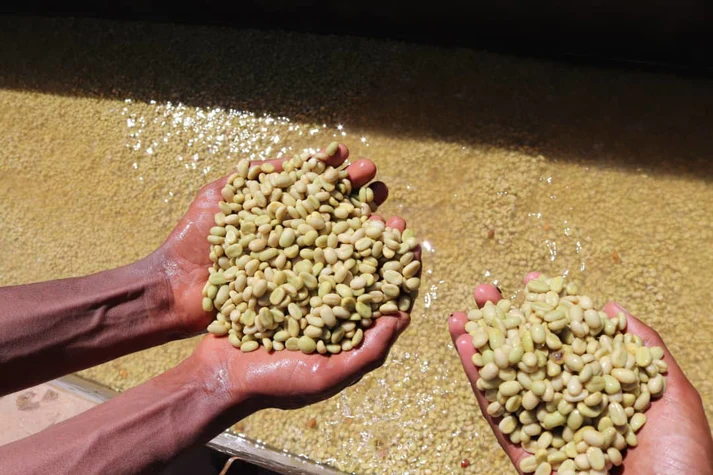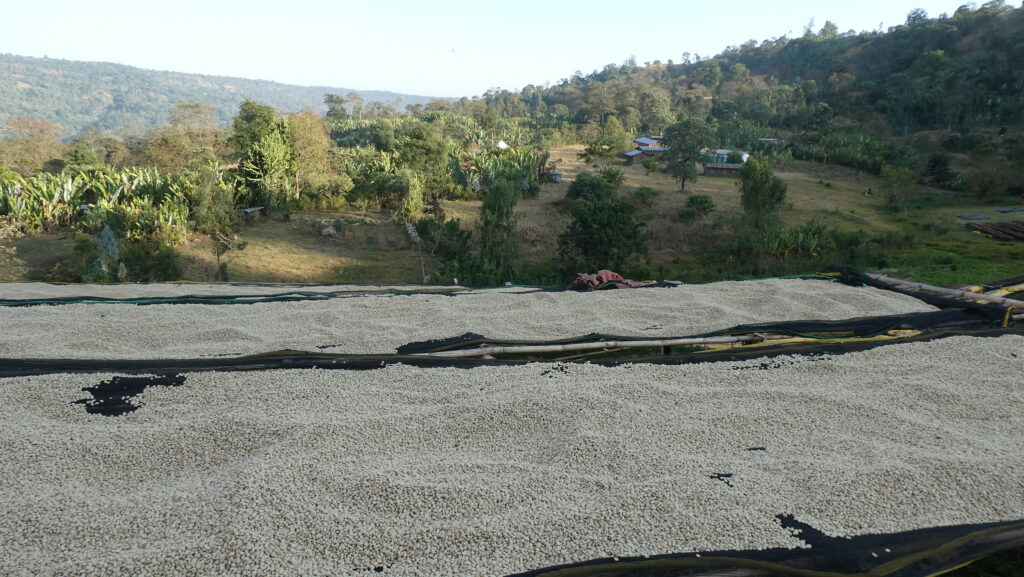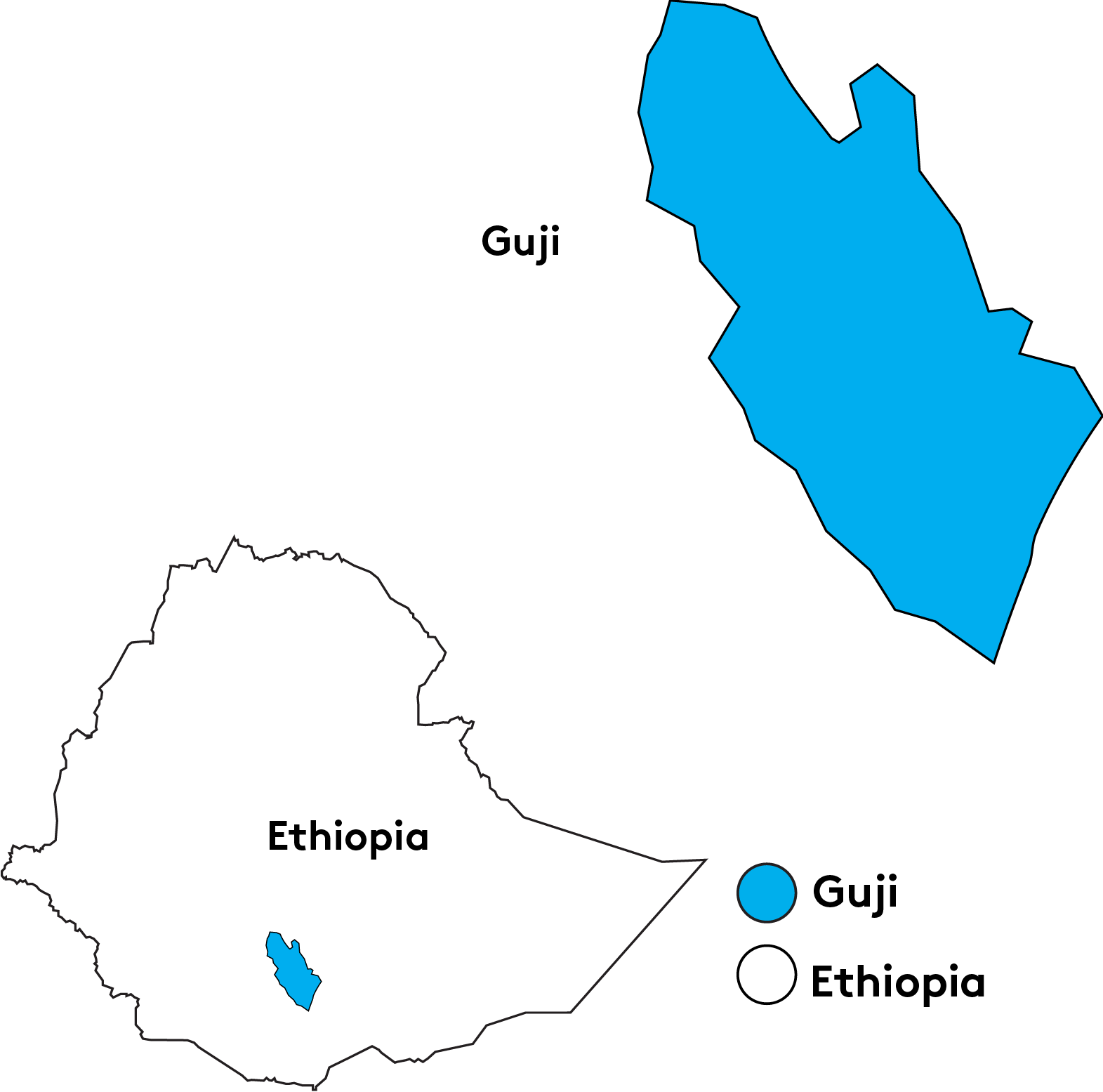This lot of coffee comes from the Guji Uraga washing station, located in the Uraga district of the Guji zone in the Oromia region of Ethiopia. The woreda, or district, of Uraga is bordered on the south by Odo Shakiso, on the west by the Borena Zone, on the north by Sidama, and on the east by Bore.
The washing station is in the Solomo kebele and was established in 2014 by Zelalem Alemu, a vertical integration partner of Tracon Trading. The total area spans 2 hectares with 300 raised drying beds with an annual processing capacity of 7 containers. Nearly 2000 smallholder producers contribute red cherry to this facility, from nearby kebeles including Haro, Beri, Lecho, and Suke.
Region: Oromia
Zone: East Guji
Woreda: Uraga
Kebele: Solomo
This coffee underwent Anaerobic Fermentation where hand-picked cherries were first meticulously sorted to remove any unripe or damaged ones, enhancing the final cup’s quality and sweetness. These cherries were then packed into vacuumed sealed bags that include a one-way valve to release oxygen, to create a limited oxygen environment and allow a longer fermentation to occur. They remained in the bags for 3 days at a temperature of 23-24°C until the pH became 3. After these 3 days, the cherries were then placed on raised beds under shade for 2 days and in full sun for 2-3 weeks until they reached ideal moisture levels.
Coffee is prepared for export at Tracon Trading’s coffee cleaning and storage plant on 30,000 sq meters of land in Addis Ababa. The plant is equipped with modern Pinhalense coffee processing machines and a Buhler Z+ color sorter. The machine has the capacity of processing six tons per hour. Beans pass through a final hand sort on conveyor belts. The plant’s six storage silos have a capacity of roughly 15,000 metric tons. The warehouses are clean, with ample lighting and ventilation, which are ideal for maintaining the quality of the coffee.
